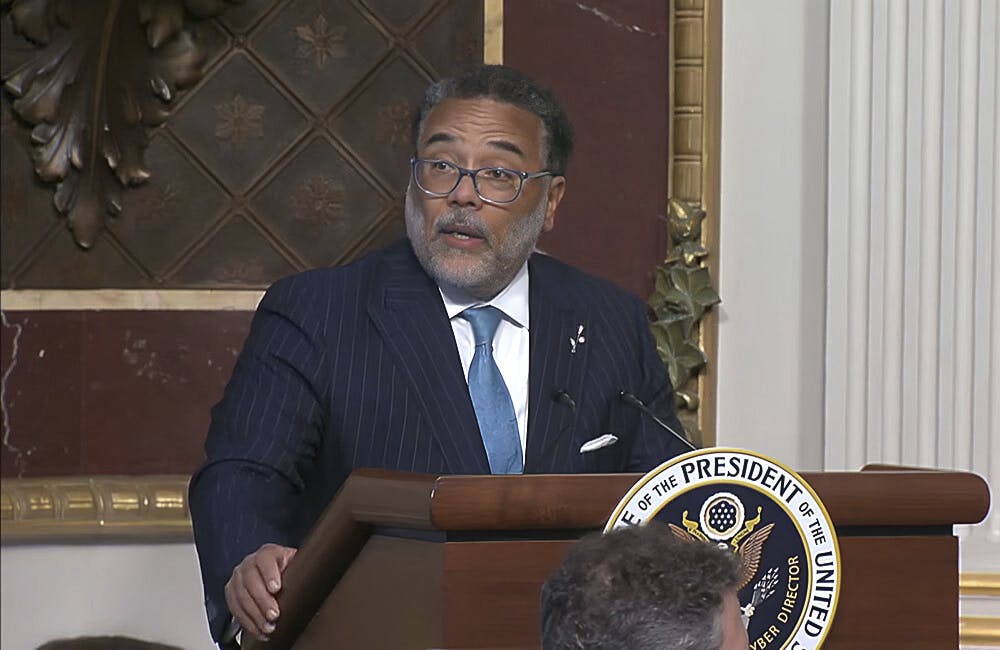Defense Board Eyes Improving Acquisition, Culture for Innovation
Two Defense Innovation Board studies aim to shed light on overcoming some of DOD’s biggest challenges to modernization.

Two Defense Innovation Board studies want to identify areas to improve acquisition and data readiness at the Defense Department.
Streamlining acquisitions, rapid fielding of technology and promotion of competition are some of the primary challenges and barriers for modernization, according to officials at the Nov. 14 board meeting.
“The areas we’re looking at are everything from security processes, whether that is individual security clearances or secure facilities and their broad use, to the authority to operate in a secure ecosystem, to personnel practices, to the acquisition mechanisms themselves, everything ranging from the assets that we have or the data we need to receive,” said CACI International Director Sue Gordon, who leads one of the studies, “Lowering Barriers to Innovation.”
Leaders point to the agency’s culture as a factor impeding innovation.
“We promote based on compliance. You show that you’re good at what you do. And we expect you to comply with the requirements that we put in place,” said Marine Corps Chief Warrant Officer 3 Matt Pine at the meeting. “It’s hard to find that talent and that desire to change things when we’re focused on complying.”
“We all know that the defense innovation ecosystem is fraught with bureaucratic overhead, inefficient processes and self-imposed barriers that slow us down. So, with this study, we’re tackling the barriers that are easiest to tackle and have the most impact. And by easiest, what I mean is that they are implementable, that there is no statute or reason other than our own choice,” Gordon said.
Pine called the agency’s acquisition process its “greatest” impediment.
“As we know, it takes three to five years to vet and approve anything to get from [research and development] into the hands of the warfighter,” Pine said, adding that taxpayers and the agency are suffering due to monopolies created over the past 30 years within the Defense Industrial Base. “If I’m the sole source of supply, I don’t have to be good at it. So, we haven’t created a lot of competition.”
One of DOD’s biggest priorities is data centricity, especially as it works toward its Combined Joint All-Domain Command and Control (CJADC2) concept of decision advantage across all military domains.
“Without data readiness, you can’t have a ready military force. So we need to train our soldiers on data like we train them on the platforms and the weapons they use every day. The soldiers need to be comfortable with using data at the speed of mission to achieve that operational advantage,” Thomas Sasala, deputy director of the Army’s Enterprise Management Office, said during the meeting.
The second study, “Building a DOD Data Economy,” aims to identify gaps in the department’s data economy and leverage industry best practices, including principles, frameworks and metrics.
“There’s an interesting bias against using real data. Instead, we oddly rely on our trusty PowerPoint presentations, which may or may not have a solid basis in data or facts for decision-making,” Sasala added.
Results from the studies are expected during the board’s Jan. 26 meeting.
This is a carousel with manually rotating slides. Use Next and Previous buttons to navigate or jump to a slide with the slide dots
-

State Department Touts Digital Diplomacy in New Tech Strategy
The new plan outlines ‘digital solidarity’ to counter threats in cyberspace, including malicious artificial intelligence.
8m read -

DHS, DOD Officials: AI is a Teammate, Not a Tool
AI can work alongside government by providing better information to humans for them to make real-time decisions.
5m read -

White House Might Remove Degrees From Federal Cyber, IT Jobs
White House and federal leaders are moving toward skills-based hiring practices to fill critical roles in IT and cybersecurity.
5m read -

IRS Tax Filing Pilot Part of Digital-First Customer Experience Plan
Many taxpayers increasingly expect flexible, easy and self-directed digital interactions, agency leaders said.
5m read








